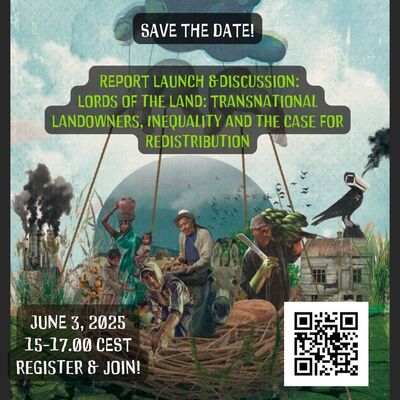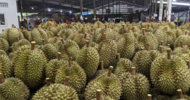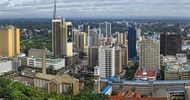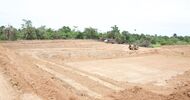Part asset manager, part farmland operator, The Land Group acquires property and manages it with a variety of regenerative practices for institutional, family office, and fund investors. The firm currently has 40,000 hectares under operation in Uruguay and Paraguay.
Agriculture & Natural Solutions Acquisition Corporation announced agreement for a business combination with the iconic Australian Food & Agriculture Company Limited, one of the largest diversified agricultural portfolios in New South Wales
- RFSI Forum
-
04 September 2024
A partnership between UAE agribusiness, Al Dahra, and Danish climate agtech company, Agreena, will see the largest consolidated arable farm in the European Union transition to regenerative agriculture.
The criminal trial of two community land rights defenders and eight farmers of Nyamuntende Village in Kiryandongo district for allegedly threatening violence against land grabbers’ laborers is set to begin tomorrow.
- Witness Radio
-
13 February 2023
There will be plenty more scuffles between local populations and new global landlords. But, according to the Financial Times, such fights are unlikely to stem the tide of land investment.
In April 2021, the Netherlands-based Kempen Capital Management (Kempen) launched the SDG Farmland Fund – a new investment solution to offer institutional investors global access to farmland as an asset class.
The deal size reflects the growing demand for farmland investments, as investors seek alternative assets amid heightened market volatility, fears of inflation, an emphasis on sustainability, and more.
Spanish companies operating in Morocco keep a low profile and avoid the media spotlight, as they don't want to be accused of relocating their agricultural business to the third world.
- HortiDaily
-
02 November 2020
The new joint venture plans to invest in a number of upstream businesses, including a feed mill with a production capacity of 12,000 tons per month, a breeder farm and a pig farm in Yangon.
In agricultural frontier zones, large landowners and corporations often pressure peasants to obtain legal title to the lands they farm only to buy the lands on the cheap as soon as the title is issued.
- Los Despojados
-
08 February 2016
The PAN Asia Pacific (PANAP) together with farmers, farmworkers, fisherfolk, indigenous peoples, rural women and youth across Asia Pacific declare 29 March as the “Day of the Landless” aims to highlight land and resource grabbing as human rights issue.
The Rockefeller Foundation says the 10,000 ha rice farm and outgrower scheme that Olam is constructing in Nigeria is a win-win land project.
Farmers remain the main buyer group as they seek to expand their existing acreage, followed by UK investors and private purchasers, including overseas buyers taking advantage of the current weakness of sterling
- Property Wire
-
12 June 2013
Since 2011, World Bank investments in large palm oil companies have virtually stopped, but it has backed off from applying the same approach to other crops, although the risks to local communities and indigenous peoples from land grabs from other agribusinesses are not much different.
Of the countries that lost the highest percentages of their cultivated land to land grabs, nine out of 10 have malnourishment rates of 5 percent or more.
- Mother Jones
-
06 February 2013
Of the $4.2 billion that the International Finance Corporation, the private sector arm of the World Bank Group, invested in agribusiness and forestry in the same period, just three investments – or 2 percent – had any component related to land acquisition.
- World Bank
-
11 October 2012
Trading as Kimberley Agricultural Investments, it's understood that a Chinese investment group is interested in developing a major sugar industry in the region, as well as a meatworks capable of processing 500,000 head of cattle a year.
A pioneer investor in farmland and the food price rally is looking ahead to new trends -- war, epidemics and climate change as the investment opportunities of the future.
During the recent review of Cambodia before the Committee on Economic, Social and Cultural Rights, several Committee members raised concerns about the potential effects a land deal with the Kuwaiti government could have on various economic, social and cultural rights in Cambodia, including the rights to food, housing and an adequate standard of living.
The tech behemoth is betting that planting millions of eucalyptus trees in Brazil will be the path to a greener future. Some ecologists and local residents are far less sure.
A new World Bank report on land in Africa acknowledges the failures of large land deals but still promotes large-scale land investments.
- Zimbabweland
-
03 June 2024
Financial players are moving aggressively to snatch up lands around the world with access to water for irrigation. Their strategy is to pump as much water as they can and as fast as they can into the production of crops that reap high prices in export markets.
The Association of Women Living Alongside Socapalm Edéa (AFRISE), whose rights have been violated by Socapalm in Edéa, take their demands to the President of Cameroon
The UN counted 355 SLAPPs from the business community between 2015 and 2022. Individuals and organisations that expose human rights violations, abuses in mining, agriculture and forestry and on palm oil plantations are most often affected.
- Down to earth
-
27 February 2023
On the ground and in the courts, members of the Moi indigenous group are resisting oil palm expansion in West Papua, Indonesia
- China Dialogue
-
15 November 2022
Organisations call for a halt to IFC’s financing of industrial agriculture as it undermines the diversified, agroecological food systems that support food sovereignty
- Signatories
-
13 October 2022
A legal battle launched by several organisations to force Bolloré to remedy land and other rights violations around the Socapalm plantations in Cameroon moves ahead as the appeal judge rules again in favour of the plaintiffs.
The digitalisation of information on land and natural resources is exacerbating land grabbing in the remaining agricultural frontiers of Latin America.
The PHC oil palm plantations provide 100 years of lessons about the failures of agricultural, financial and governance systems in a globalized world.
- InfoCongo
-
23 December 2021
The type of land use, the concentration of land and natural resources, the destruction of ecosystems, and the homogenization of landscapes, are key elements in the debate on the current health crisis and human resilience.
















